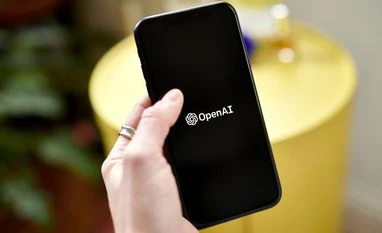OpenAI will add Microsoft as board observer, plans governance changes
The announcement Wednesday, a blog post penned by Altman, comes two weeks after the CEO's shock firing from the artificial intelligence startup, followed by an operatic boardroom power struggle
)
Photo: Bloomberg
Listen to This Article
By Rachel Metz
OpenAI said that Sam Altman was officially reinstated as chief executive officer and that it has a new initial board of directors, with Microsoft Corp. joining as a nonvoting observer.
The announcement Wednesday, a blog post penned by Altman, comes two weeks after the CEO’s shock firing from the artificial intelligence startup, followed by an operatic boardroom power struggle.
OpenAI also said that Mira Murati — who had been chief technology officer until Altman’s ousting when she was briefly named interim CEO — is once again the company’s CTO.
Microsoft, the company’s largest investor, had not previously had a position on the board before it took the observer role. The new directors are Bret Taylor, the former co-CEO of Salesforce Inc., who will be the chairman, Larry Summers, the former US Treasury Secretary, and Adam D’Angelo, a holdover from the previous board and the CEO of question-and-answer site Quora Inc. One of the directors’ primary tasks will be to build out a new, more permanent board.
Also Read
In an interview Wednesday, Altman said the permanent board will be selected “fairly quickly.” He did not say how many people will eventually be part of the group, but did say that it will be “significantly enlarged” from the current number. Asked whether he will rejoin the board, Altman said it’s “not a top priority” right now.
In the blog post, the CEO wrote, “I have never been more excited about the future,” adding that he is “extremely grateful for everyone’s hard work in an unclear and unprecedented situation.”
In a note accompanying Altman’s post, Taylor said the new board members will focus on building a “qualified, diverse board.” Taylor also said the company will “enhance the governance structure of OpenAI.” The startup has been criticized for a structure that allowed a nonprofit board to oust the company’s CEO without consulting its largest investors.
OpenAI began in 2015 as a nonprofit research organization, but later shifted its structure to include a for-profit startup that has solicited investments and entered into partnerships with companies such as Microsoft to use its AI tools. The company is slated to be valued at $86 billion in a planned tender offer that will let some employees sell their stakes to outside investors.
In an effort to “further stabilize the OpenAI organziation,” Taylor said that company would convene an “independent committee of the board to oversee a review of the recent events.” Previously, Bloomberg reported that Altman agreed to an internal investigation of the conduct that led to his dismissal.
Ilya Sutskever, OpenAI’s chief scientist and co-founder, was part of the board that fired Altman. Later, Sutskever said that he regretted his role in the CEO’s ouster. In the post Wednesday, Altman wrote that Sutskever won’t be a board member, but the company is “discussing how he can continue his work at OpenAI.”
Altman’s firing on Nov. 17 from the maker of the popular ChatGPT chatbot shocked the tech industry. That day, the board said in a statement that Altman was not “consistently candid” with OpenAI’s directors, “hindering its ability to exercise its responsibilities.”
The decision touched off a whirlwind five days at the company: OpenAI co-founder and president Greg Brockman quit in protest over Altman’s ouster. Murati became interim CEO, moved to re-hire Altman, and was soon replaced as CEO by the board. Meanwhile, nearly all of OpenAI’s roughly 770 employees signed a letter threatening to quit unless Altman was reinstated.
On Nov. 21, OpenAI said it reached a deal, in principle, to reinstate Altman as CEO and replace the board.
In the post, Altman said that the company’s priorities going forward would be advancing its research, improving its governance structure and refocusing on its products. In the chaos, some of the company’s customers had questioned how much to rely on the company for their AI needs.
More From This Section
Topics : Artificial intelligence Microsoft governance
Don't miss the most important news and views of the day. Get them on our Telegram channel
First Published: Nov 30 2023 | 7:38 AM IST
